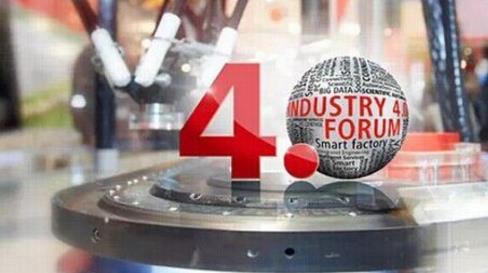Service Hotline
13751780907
13922748515
"Industry 4.0" is a label many manufacturing companies are keen to slap on themselves. Since its introduction at the 2013 Hannover Messe, the concept has become synonymous with intelligent manufacturing. With the launch of the "Made in China 2025" national strategy last year, it has become a darling of the capital market.

“Industry 4.0” was once very popular, but what is its essence?
Faced with the industry chaos caused by companies frequently touting "Industry 4.0," Xu Xiaonian, professor of economics at the China Europe International Business School, recently criticized the hype in a public speech: "For most Chinese companies, they haven't even achieved 2.0, so how can they talk about 4.0?" This also prompts us to calmly consider the true nature of Industry 4.0.
To understand Industry 4.0, we must first clarify the meanings of Industries 1.0, 2.0, and 3.0. The term "Industry 4.0" is derived from "Industry 1.0," which achieved mechanization through steam engines; "Industry 2.0," which introduced the division of labor and assembly lines; and "Industry 3.0," which achieved automation through the application of electronics and information technology. Its core is intelligent manufacturing.
"In the past, the automation of 'Industry 3.0' occurred exclusively in the workshop, machinery, production lines, and workshop management. The most significant feature of Industry 4.0 is that automation isn't limited to the manufacturing floor; it encompasses all processes, including R&D, supply chain management, and quality control, achieving end-to-end automation," explained Wang Haibin, General Manager of the Digital Factory Group at Siemens (China).
For a manufacturing company, the significance of Industry 4.0 lies in integrating the entire process, from R&D and production to factory construction and operations, throughout the entire lifecycle. This significantly improves flexibility, delivery time, and R&D and production efficiency. At its booth at the ongoing China Industrial Expo, Siemens showcased successful cases and comprehensive applications of its digital enterprise. On a single product line, users can simply enter personalized requirements, such as product size and color, on an iPad or mobile phone, and receive a customized stamp within 15 minutes.
However, the implementation of Industry 4.0 isn't limited to a single company. "Industrial production chains encompass various enterprises, large and small, each operating as an information island. Only when data is shared across the entire supply chain, across thousands of enterprises, upstream, midstream, and downstream, can we truly achieve 'Industry 4.0,'" Wang Haibin added. Considering the overly broad concept of "Industry 4.0," Siemens used the more conservative term "digitalization" in its solution description.
"What we're talking about now is still essentially a smart factory, which can only achieve local coordination between one or a few enterprises and cannot yet connect the isolated islands of the entire environment." Lin Bin, Executive Vice President of Siemens (China) Co., Ltd., stated that it's hard to imagine any company having already achieved Industry 4.0. For Siemens, it's just one company on the path to Industry 4.0, but is currently in talks with domestic manufacturers to find industrial cloud infrastructure partners.
As a concrete measure to align Germany's "Industry 4.0" and "Made in China 2025" strategies, Siemens established partnerships with Baosteel Group Corporation, China Shipbuilding Industry Corporation, China Electronics Information Industry Group Corporation, and China Aerospace Science and Industry Corporation during German Chancellor Angela Merkel's visit to China in June of this year. These partnerships represent a powerful alliance in the steel, shipbuilding, electronics, and aerospace sectors, and are a key component of intelligent manufacturing.
As for how China's manufacturing industry can achieve transformation and upgrading, Lin Bin believes that whether it's digitalization or "Industry 4.0," companies' investments are ultimately intended to generate commercial value, achieving goals such as reducing costs, improving quality, and shortening R&D time. Doing business in the industry is a long-term, steady process that requires driving commercial value through individual projects.
From electrification to automation and now digitalization, Siemens, a century-old company, has experienced repeated pain points in its ongoing strategic transformation. "Digitalization is both an opportunity and a challenge." Lin Bin said that the current trend of digitalization is an objective existence. It is indeed bringing profound changes to all walks of life. Everyone needs to embrace the digital age and find their next step in the digital age.
Prev:German robotics and automation industry revenue hits new high
Next:Changes in the industrial control industry caused by intelligent factories